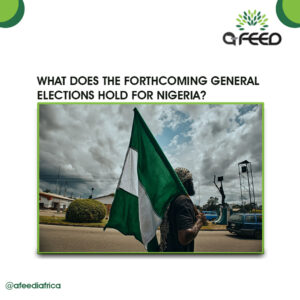With the outcome and incidents surrounding the just concluded EndSars memorial in Nigeria, and the persistent crisis of governance in the country in Nigeria, It is reasonable to assume that the results of the forthcoming elections are unlikely to bring about improvements. The country is slowly slipping away from democracy. How did we get to this stage and what can be done to prevent her from autocracy?

The last election was held on 23rd February 2019. There were electoral disputes that were unresolved and violence from the parties involved. If proper actions are not taken, they would be a recurrence in the next elections. What these mean for us is that Civil organizations and independent bodies, home and abroad should cooperate to review the previous election with objectivity. We believe that these independent bodies through research, review and intervention can help to curb electoral malpractices which will drive in development for a better Nigeria and Africa at large.
A 2017 survey by Afrobarometer, an African research network, found that 54% of Nigerians agree that ordinary people can make a difference in the fight against corruption. This means that Nigerians needs to stop being indifferent during electoral periods because they have lost hope in the country’s growth. The citizens, especially her youths, should be enlightened and encouraged to get involved in the electoral processes. Afterall, they are the ones whose vote counts.
We need to take into account that over the years, Nigeria has witnessed unprecedented challenges – ranging from economic recession to insecurity. Hence, striving for a change in the narrative albeit possible would not be an easy task.
It is essential that the civil organizations are up to the task, they should not be dispirited when faced with opposition. With determination and consistency, their efforts would compound and subsequently it would become easier to tackle the vices in the country.
